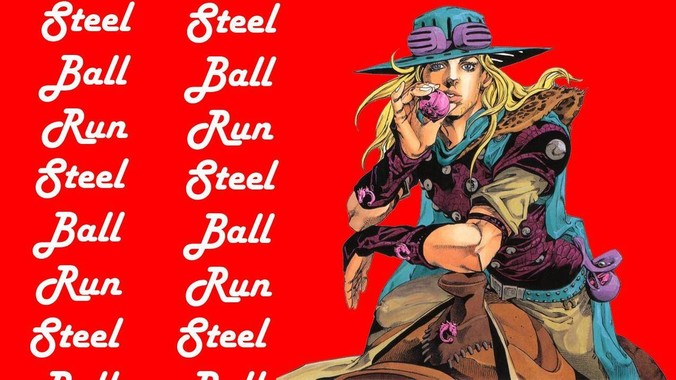砖英文怎么说
新闻资讯 |
2024-01-09 17:29:55

Brick can be one of the oldest building materials, and it has been used for thousands of years to construct various structures. Its durability and versatility have made it a popular choice for construction projects around the world. But how do we say brick in English?
In English, we use the word "brick" to refer to a rectangular block made of clay, concrete, or other materials, often used in building walls or other structures. The word "brick" originated from the Old English word "brec," which means a piece of baked clay. It first appeared in writing in the 15th century.
The term "brick" is used both as a noun and a verb. As a noun, it refers to the physical block, while as a verb, it means to construct or pave with bricks. For example, "The house was made of red bricks" or "They bricked the patio for a more durable surface."
There are also different types of bricks, each with its own unique name. The most common type is the clay brick, which is made from clay and water, then dried and fired in a kiln. Another type is the concrete brick, which is made by mixing cement, sand, and water, then molding and curing it. Other types include adobe bricks, mud bricks, and fly ash bricks.
Besides its use in construction, the word "brick" also has several idiomatic expressions. For instance, "to be as solid as a brick" means to have a strong and steady character, while "hit a brick wall" indicates a situation where no further progress can be made. These expressions show how the durability and strength of brick have become a metaphor for human qualities and obstacles.
In addition, there is a slang term "brick," which means something that is very cold or unfeeling. It is often used to describe a person's attitude or behavior, such as "He was acting like a brick when I told him the news."
The word "brick" has also been used to name certain objects that resemble its shape or texture. For example, a cell phone with a rectangular shape and hard exterior is called a "brick phone." A dessert made of layers of ice cream and other ingredients is called an "ice cream brick." These creative uses of the word demonstrate its versatility and adaptability in the English language.
In conclusion, brick may seem like a simple and ordinary word, but it holds a rich history and meaning. From its origin in Old English to its various uses and expressions, it has become an essential part of the English language. So next time you see a sturdy brick wall or hear someone say "as solid as a brick," you'll know the story behind this versatile word.
 Brick can be one of the oldest building materials, and it has been used for thousands of years to construct various structures. Its durability and versatility have made it a popular choice for construction projects around the world. But how do we say brick in English?
In English, we use the word "brick" to refer to a rectangular block made of clay, concrete, or other materials, often used in building walls or other structures. The word "brick" originated from the Old English word "brec," which means a piece of baked clay. It first appeared in writing in the 15th century.
The term "brick" is used both as a noun and a verb. As a noun, it refers to the physical block, while as a verb, it means to construct or pave with bricks. For example, "The house was made of red bricks" or "They bricked the patio for a more durable surface."
There are also different types of bricks, each with its own unique name. The most common type is the clay brick, which is made from clay and water, then dried and fired in a kiln. Another type is the concrete brick, which is made by mixing cement, sand, and water, then molding and curing it. Other types include adobe bricks, mud bricks, and fly ash bricks.
Besides its use in construction, the word "brick" also has several idiomatic expressions. For instance, "to be as solid as a brick" means to have a strong and steady character, while "hit a brick wall" indicates a situation where no further progress can be made. These expressions show how the durability and strength of brick have become a metaphor for human qualities and obstacles.
In addition, there is a slang term "brick," which means something that is very cold or unfeeling. It is often used to describe a person's attitude or behavior, such as "He was acting like a brick when I told him the news."
The word "brick" has also been used to name certain objects that resemble its shape or texture. For example, a cell phone with a rectangular shape and hard exterior is called a "brick phone." A dessert made of layers of ice cream and other ingredients is called an "ice cream brick." These creative uses of the word demonstrate its versatility and adaptability in the English language.
In conclusion, brick may seem like a simple and ordinary word, but it holds a rich history and meaning. From its origin in Old English to its various uses and expressions, it has become an essential part of the English language. So next time you see a sturdy brick wall or hear someone say "as solid as a brick," you'll know the story behind this versatile word.
Brick can be one of the oldest building materials, and it has been used for thousands of years to construct various structures. Its durability and versatility have made it a popular choice for construction projects around the world. But how do we say brick in English?
In English, we use the word "brick" to refer to a rectangular block made of clay, concrete, or other materials, often used in building walls or other structures. The word "brick" originated from the Old English word "brec," which means a piece of baked clay. It first appeared in writing in the 15th century.
The term "brick" is used both as a noun and a verb. As a noun, it refers to the physical block, while as a verb, it means to construct or pave with bricks. For example, "The house was made of red bricks" or "They bricked the patio for a more durable surface."
There are also different types of bricks, each with its own unique name. The most common type is the clay brick, which is made from clay and water, then dried and fired in a kiln. Another type is the concrete brick, which is made by mixing cement, sand, and water, then molding and curing it. Other types include adobe bricks, mud bricks, and fly ash bricks.
Besides its use in construction, the word "brick" also has several idiomatic expressions. For instance, "to be as solid as a brick" means to have a strong and steady character, while "hit a brick wall" indicates a situation where no further progress can be made. These expressions show how the durability and strength of brick have become a metaphor for human qualities and obstacles.
In addition, there is a slang term "brick," which means something that is very cold or unfeeling. It is often used to describe a person's attitude or behavior, such as "He was acting like a brick when I told him the news."
The word "brick" has also been used to name certain objects that resemble its shape or texture. For example, a cell phone with a rectangular shape and hard exterior is called a "brick phone." A dessert made of layers of ice cream and other ingredients is called an "ice cream brick." These creative uses of the word demonstrate its versatility and adaptability in the English language.
In conclusion, brick may seem like a simple and ordinary word, but it holds a rich history and meaning. From its origin in Old English to its various uses and expressions, it has become an essential part of the English language. So next time you see a sturdy brick wall or hear someone say "as solid as a brick," you'll know the story behind this versatile word.
 Brick can be one of the oldest building materials, and it has been used for thousands of years to construct various structures. Its durability and versatility have made it a popular choice for construction projects around the world. But how do we say brick in English?
In English, we use the word "brick" to refer to a rectangular block made of clay, concrete, or other materials, often used in building walls or other structures. The word "brick" originated from the Old English word "brec," which means a piece of baked clay. It first appeared in writing in the 15th century.
The term "brick" is used both as a noun and a verb. As a noun, it refers to the physical block, while as a verb, it means to construct or pave with bricks. For example, "The house was made of red bricks" or "They bricked the patio for a more durable surface."
There are also different types of bricks, each with its own unique name. The most common type is the clay brick, which is made from clay and water, then dried and fired in a kiln. Another type is the concrete brick, which is made by mixing cement, sand, and water, then molding and curing it. Other types include adobe bricks, mud bricks, and fly ash bricks.
Besides its use in construction, the word "brick" also has several idiomatic expressions. For instance, "to be as solid as a brick" means to have a strong and steady character, while "hit a brick wall" indicates a situation where no further progress can be made. These expressions show how the durability and strength of brick have become a metaphor for human qualities and obstacles.
In addition, there is a slang term "brick," which means something that is very cold or unfeeling. It is often used to describe a person's attitude or behavior, such as "He was acting like a brick when I told him the news."
The word "brick" has also been used to name certain objects that resemble its shape or texture. For example, a cell phone with a rectangular shape and hard exterior is called a "brick phone." A dessert made of layers of ice cream and other ingredients is called an "ice cream brick." These creative uses of the word demonstrate its versatility and adaptability in the English language.
In conclusion, brick may seem like a simple and ordinary word, but it holds a rich history and meaning. From its origin in Old English to its various uses and expressions, it has become an essential part of the English language. So next time you see a sturdy brick wall or hear someone say "as solid as a brick," you'll know the story behind this versatile word.
Brick can be one of the oldest building materials, and it has been used for thousands of years to construct various structures. Its durability and versatility have made it a popular choice for construction projects around the world. But how do we say brick in English?
In English, we use the word "brick" to refer to a rectangular block made of clay, concrete, or other materials, often used in building walls or other structures. The word "brick" originated from the Old English word "brec," which means a piece of baked clay. It first appeared in writing in the 15th century.
The term "brick" is used both as a noun and a verb. As a noun, it refers to the physical block, while as a verb, it means to construct or pave with bricks. For example, "The house was made of red bricks" or "They bricked the patio for a more durable surface."
There are also different types of bricks, each with its own unique name. The most common type is the clay brick, which is made from clay and water, then dried and fired in a kiln. Another type is the concrete brick, which is made by mixing cement, sand, and water, then molding and curing it. Other types include adobe bricks, mud bricks, and fly ash bricks.
Besides its use in construction, the word "brick" also has several idiomatic expressions. For instance, "to be as solid as a brick" means to have a strong and steady character, while "hit a brick wall" indicates a situation where no further progress can be made. These expressions show how the durability and strength of brick have become a metaphor for human qualities and obstacles.
In addition, there is a slang term "brick," which means something that is very cold or unfeeling. It is often used to describe a person's attitude or behavior, such as "He was acting like a brick when I told him the news."
The word "brick" has also been used to name certain objects that resemble its shape or texture. For example, a cell phone with a rectangular shape and hard exterior is called a "brick phone." A dessert made of layers of ice cream and other ingredients is called an "ice cream brick." These creative uses of the word demonstrate its versatility and adaptability in the English language.
In conclusion, brick may seem like a simple and ordinary word, but it holds a rich history and meaning. From its origin in Old English to its various uses and expressions, it has become an essential part of the English language. So next time you see a sturdy brick wall or hear someone say "as solid as a brick," you'll know the story behind this versatile word.

 古莱坞温泉怎么样
古莱坞温泉怎么样
 steam磁盘损坏了怎么办
steam磁盘损坏了怎么办
 食堂大锅菜视频教学
食堂大锅菜视频教学
 人教版小学英语全英教案
人教版小学英语全英教案
 郑州红星美凯龙哪个店最好
查看详细
郑州红星美凯龙哪个店最好
查看详细
 猫咪下巴一直张开
查看详细
猫咪下巴一直张开
查看详细
 新年早操幼儿园
查看详细
新年早操幼儿园
查看详细
 五星汇聚的年份
查看详细
五星汇聚的年份
查看详细
 砖英文怎么说
查看详细
砖英文怎么说
查看详细
 二极管坏了还通电吗
查看详细
二极管坏了还通电吗
查看详细
 维吾尔族旅游
查看详细
维吾尔族旅游
查看详细
 党的建设面临的四大考验
查看详细
党的建设面临的四大考验
查看详细
 为什么会有越是喜欢越是远离的心理?
为什么会有越是喜欢越是远离的心理?
 新能源车容易打滑,有人知道怎么解决吗?
新能源车容易打滑,有人知道怎么解决吗?
 有没有很爽的复仇故事?
有没有很爽的复仇故事?
 企业简介-广州市卓玉欣化妆品有限责任公司
企业简介-广州市卓玉欣化妆品有限责任公司 企业文化-广州市卓玉欣化妆品有限责任公司
企业文化-广州市卓玉欣化妆品有限责任公司 产品服务-广州市卓玉欣化妆品有限责任公司
产品服务-广州市卓玉欣化妆品有限责任公司 成功案例-广州市卓玉欣化妆品有限责任公司
成功案例-广州市卓玉欣化妆品有限责任公司 资讯动态-广州市卓玉欣化妆品有限责任公司
资讯动态-广州市卓玉欣化妆品有限责任公司 招商加盟-广州市卓玉欣化妆品有限责任公司
招商加盟-广州市卓玉欣化妆品有限责任公司 诚聘英才-广州市卓玉欣化妆品有限责任公司
诚聘英才-广州市卓玉欣化妆品有限责任公司 联系我们-广州市卓玉欣化妆品有限责任公司
联系我们-广州市卓玉欣化妆品有限责任公司 企业模式-广州市卓玉欣化妆品有限责任公司
企业模式-广州市卓玉欣化妆品有限责任公司 企业团队-广州市卓玉欣化妆品有限责任公司
企业团队-广州市卓玉欣化妆品有限责任公司 经营理念-广州市卓玉欣化妆品有限责任公司
经营理念-广州市卓玉欣化妆品有限责任公司 企业愿景-广州市卓玉欣化妆品有限责任公司
企业愿景-广州市卓玉欣化妆品有限责任公司 新闻动态-广州市卓玉欣化妆品有限责任公司
新闻动态-广州市卓玉欣化妆品有限责任公司 行业动态-广州市卓玉欣化妆品有限责任公司
行业动态-广州市卓玉欣化妆品有限责任公司 招聘职位-广州市卓玉欣化妆品有限责任公司
招聘职位-广州市卓玉欣化妆品有限责任公司 合作伙伴-广州市卓玉欣化妆品有限责任公司
合作伙伴-广州市卓玉欣化妆品有限责任公司 公司信息-广州市卓玉欣化妆品有限责任公司
公司信息-广州市卓玉欣化妆品有限责任公司 荣誉资质-广州市卓玉欣化妆品有限责任公司
荣誉资质-广州市卓玉欣化妆品有限责任公司